E hālāwai pu me ka ‘ulu (meet breadfruit)!

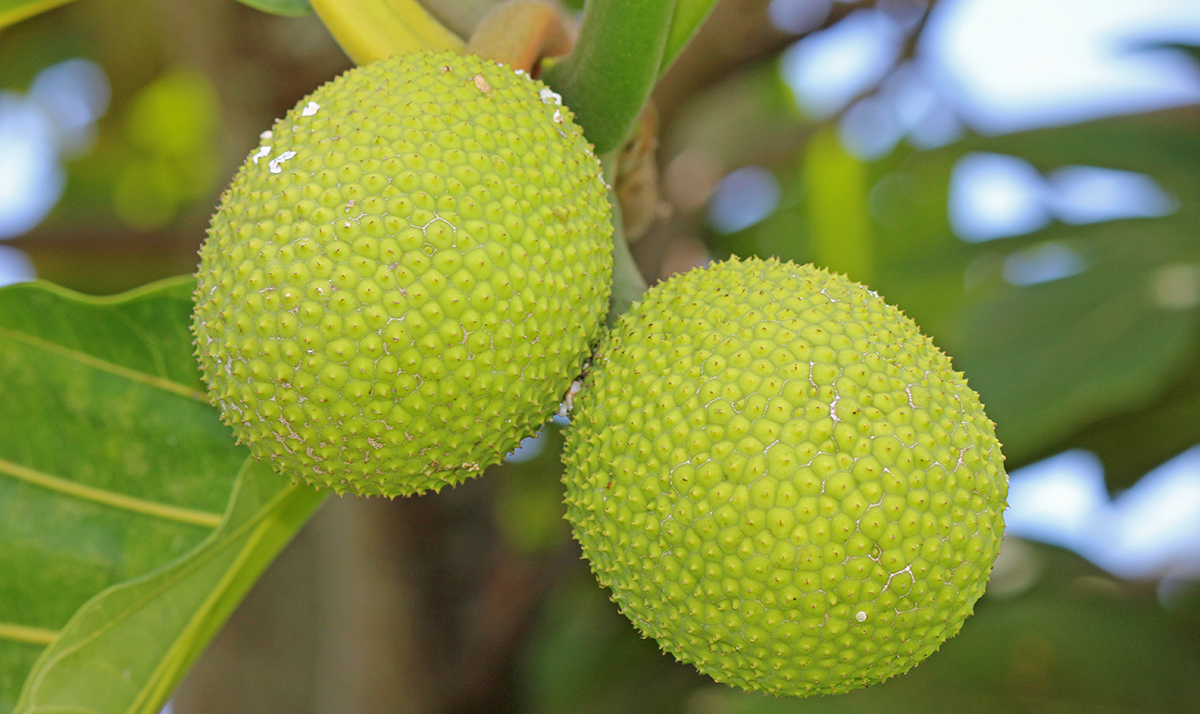
Get to know breadfruit, one of Hawai‘i’s original food crops that’s been a local staple for nearly a thousand years! ‘Ulu, or breadfruit, is an incredibly versatile food that can be prepared in a wide variety of creative, delicious ways. Its nutritional content and the fact it’s one of the most sustainable and environmentally friendly foods on the planet makes it a healthy addition to almost any diet*.
Why ‘ulu?
It’s good for you.
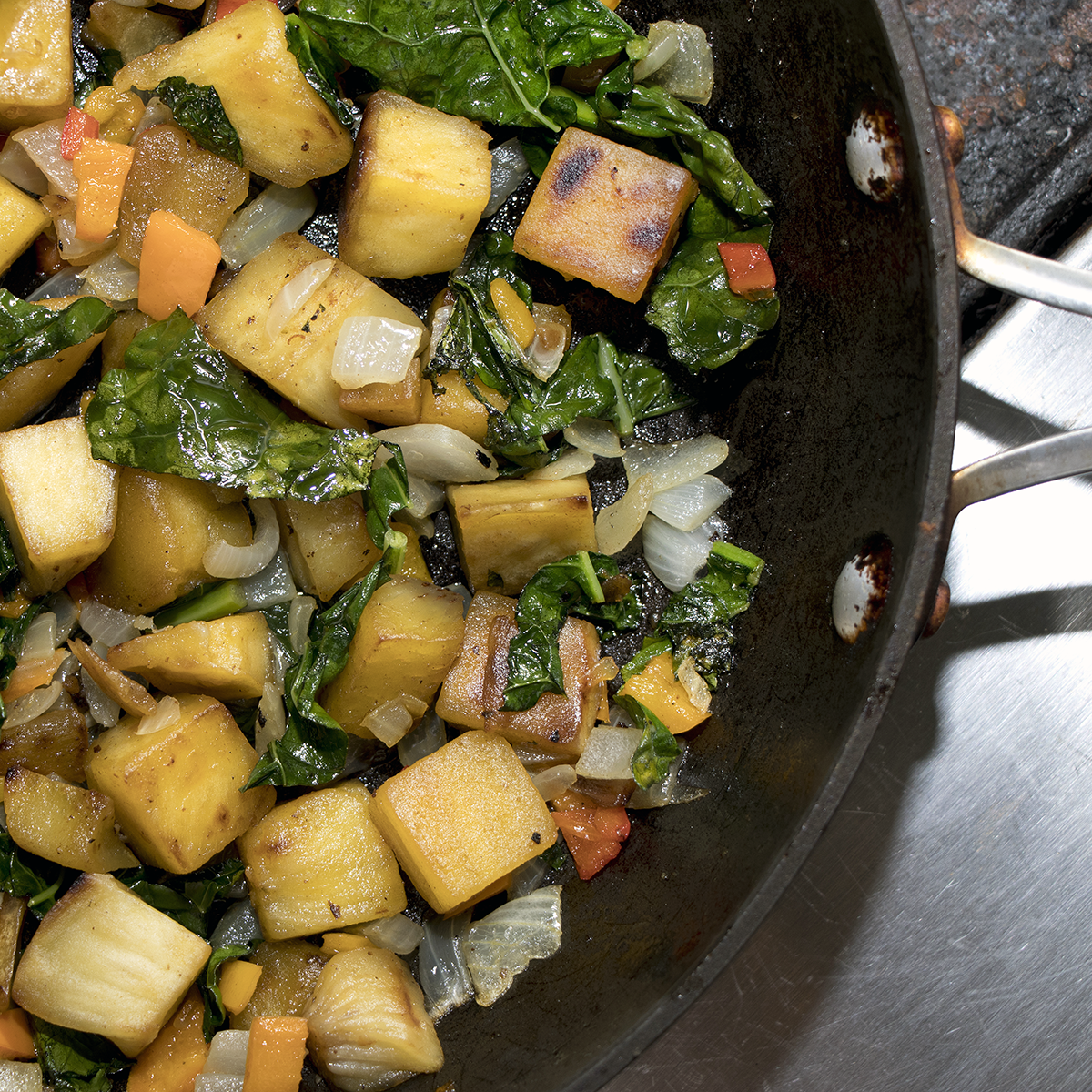 ‘Ulu is low in fat, low glycemic, non-GMO, and gluten-free. It’s an excellent source of fiber, protein, and essential vitamins and minerals, and offers a healthier alternative to starches such as potatoes, wheat, and white rice. ‘Ulu is so versatile, you can use it to make soups, salads, stews, casseroles, lasagna, burgers, hummus, pickles, gnocchi—even gluten-free flour and healthier versions of chips, breads, chocolate mousse, and ice cream!
‘Ulu is low in fat, low glycemic, non-GMO, and gluten-free. It’s an excellent source of fiber, protein, and essential vitamins and minerals, and offers a healthier alternative to starches such as potatoes, wheat, and white rice. ‘Ulu is so versatile, you can use it to make soups, salads, stews, casseroles, lasagna, burgers, hummus, pickles, gnocchi—even gluten-free flour and healthier versions of chips, breads, chocolate mousse, and ice cream!
» Check out our Recipes
It’s good for the environment and food security
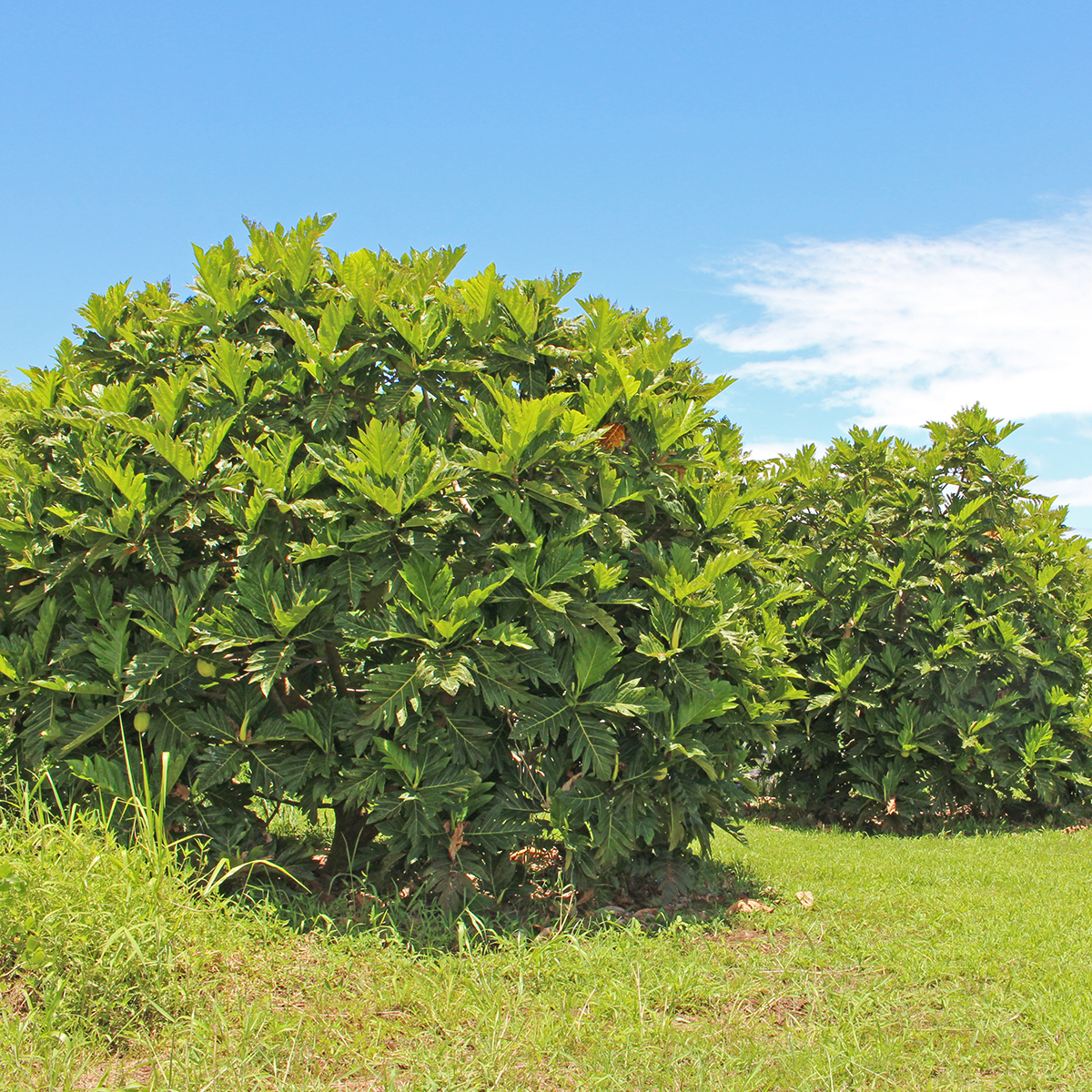 ‘Ulu is one of the world’s few staple crops that grows on perennial trees, so it doesn’t need to be replanted every year. In fact, a single ‘ulu tree can live for 50 to 100 years or more and produce hundreds, even over a thousand, pounds of fruit annually! These large, majestic trees help to sequester carbon, reduce the need to till soil or control weeds, and their heat and drought tolerance make them a favored orchard crop in tropical communities most vulnerable to famine and climate change.
‘Ulu is one of the world’s few staple crops that grows on perennial trees, so it doesn’t need to be replanted every year. In fact, a single ‘ulu tree can live for 50 to 100 years or more and produce hundreds, even over a thousand, pounds of fruit annually! These large, majestic trees help to sequester carbon, reduce the need to till soil or control weeds, and their heat and drought tolerance make them a favored orchard crop in tropical communities most vulnerable to famine and climate change.
It’s more than just food
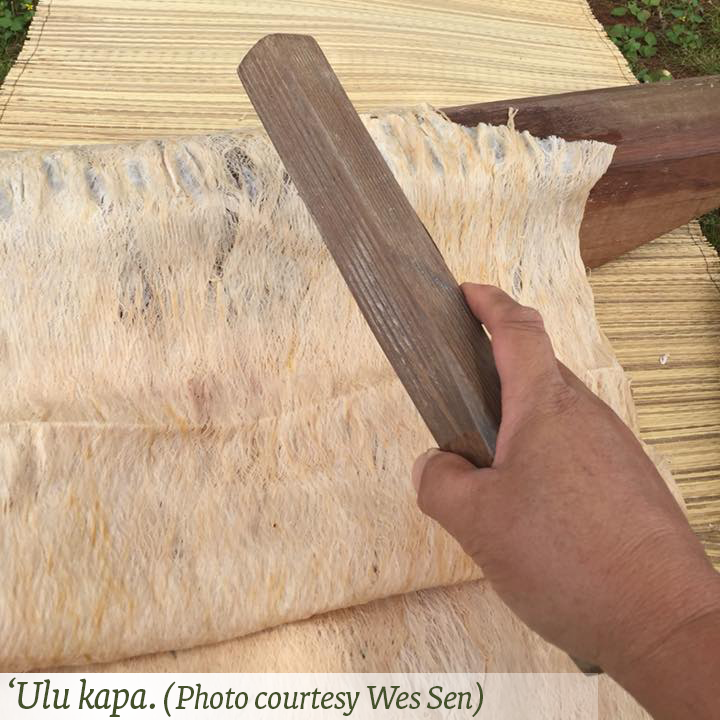 Virtually every part of an ‘ulu tree has a useful purpose. The wood is lightweight, making it ideal for building boats and houses. When burned in well-ventilated areas outdoors, the male ‘ulu flowers provide a natural mosquito repellent**.
Virtually every part of an ‘ulu tree has a useful purpose. The wood is lightweight, making it ideal for building boats and houses. When burned in well-ventilated areas outdoors, the male ‘ulu flowers provide a natural mosquito repellent**.
Tree and fruit sap can be used as an adhesive, for wound care, and as a caulking and waterproofing agent. Tree bark can be harvested for paper and fabrics such as kapa cloth.
We’re bringing ‘ulu back
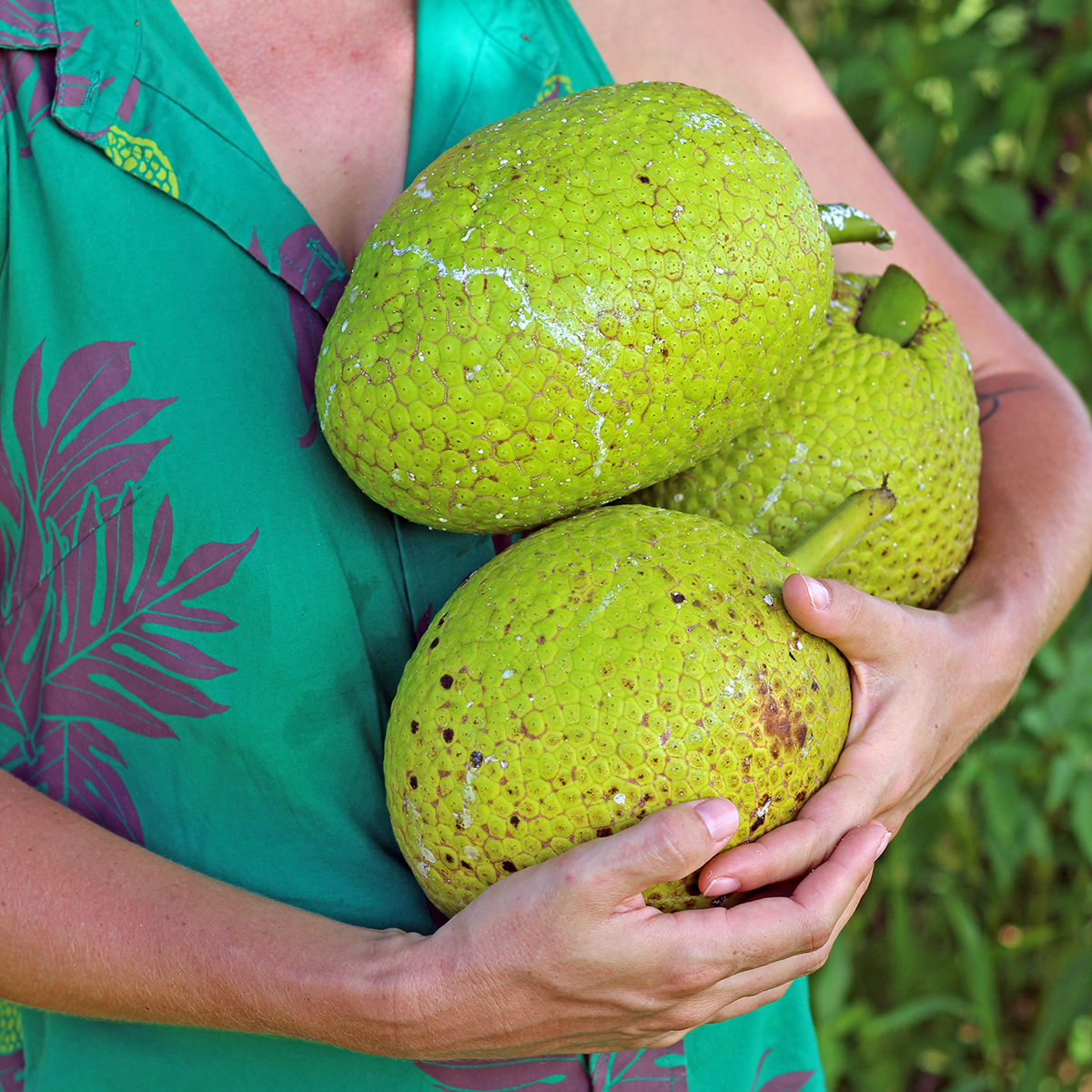 Over the past 100 years, ‘ulu and many of Hawai‘i’s other heritage crops have taken a back seat to imported, highly processed factory foods, which has had negative impacts on our local economy and community health. With revived interest in indigenous rights and local, national, and global food systems in recent decades, traditional Hawaiian crops are garnering attention and momentum. We formed the Hawai‘i ‘Ulu Cooperative to share knowledge about this remarkable fruit and make it easier for island residents and visitors to find, cook with, and enjoy ‘ulu year-round. Let us help you savor the true taste of the islands—from our trees to your table.
Over the past 100 years, ‘ulu and many of Hawai‘i’s other heritage crops have taken a back seat to imported, highly processed factory foods, which has had negative impacts on our local economy and community health. With revived interest in indigenous rights and local, national, and global food systems in recent decades, traditional Hawaiian crops are garnering attention and momentum. We formed the Hawai‘i ‘Ulu Cooperative to share knowledge about this remarkable fruit and make it easier for island residents and visitors to find, cook with, and enjoy ‘ulu year-round. Let us help you savor the true taste of the islands—from our trees to your table.
*Please consult your physician or a nutritionist before making any changes to your diet.
**‘Ulu flowers should never be burned indoors. The generated repellent emits a strong chemical agent and may be harmful if inhaled.


